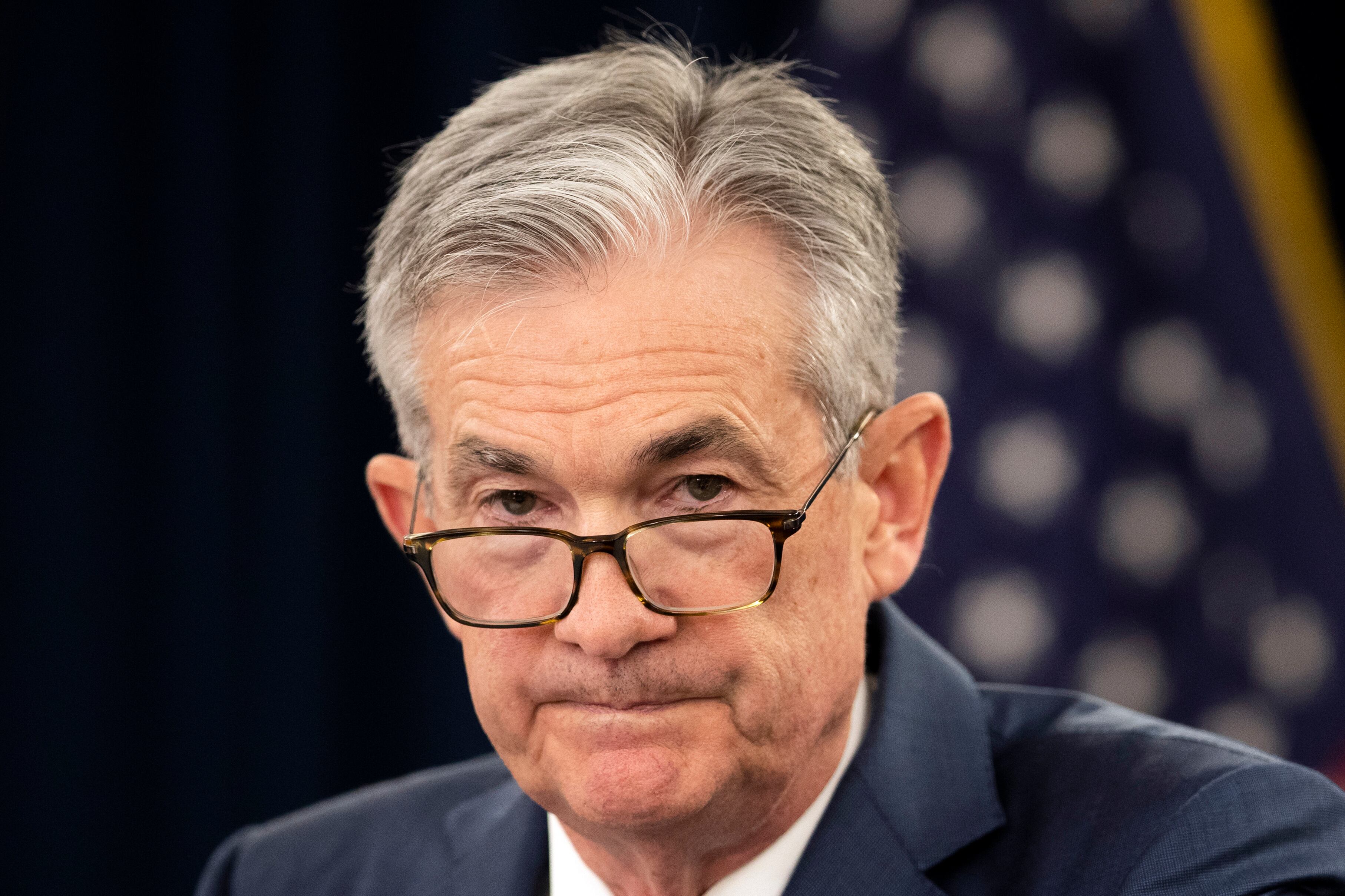WASHINGTON (AP) — President Donald Trump repeated his attacks Monday against the chair of the Federal Reserve, demanding that the central bank lower its key interest rate to boost the economy.
Trump called Powell “a major loser” and said that energy and grocery prices are “substantially lower” and “there is virtually No Inflation.” Yet Trump said the economy could slow without rate cuts.
Gas prices have fallen for the past two months, in part because oil costs have dropped on fears of slower growth, but food prices jumped in January and March and overall inflation remains above the Fed’s 2% target.
Trump's comments drove the stock market and the dollar lower as investors in the U.S. and overseas grow increasingly wary about the economic standing of the U.S. On Friday, a top White House adviser said the administration is studying whether it can fire Powell, a move that would undermine the Fed's independence and likely send shock waves through global financial markets.
The stock market, which fell immediately at the opening bell Monday, tumbled further after Trump’s post, with Dow dropping by more than 1,000 points and the broad S&P 500 stock index falling nearly 3% in mid-day trading. The dollar fell to a three-year low.
The Federal Reserve was established as an independent agency and most economists think central banks that are free of political interference do a better job at keeping inflation in check. Otherwise, it would be harder for the Fed to take unpopular steps to keep prices down, such as raising interest rates.
The interest rate on 10-year Treasuries has been rising as Trump rolled out aggressive tariff policies against trading partners and continues to attack Powell and the Federal Reserve. The interest rate ticked higher again on Monday to 4.37%.
The dollar losing value is unusual when stock prices fall and Treasury yields rise because investors typically buy U.S. government bonds during market turmoil, driving down the yield. Instead, investors appear to be avoiding U.S. markets due to the perception of rising risk.
Trump also criticized Powell for being “too late” to move on interest rates. Powell and other Fed officials have long acknowledged that they waited too long to raise rates when inflation was first ignited in 2021.
But right now, Powell has underscored that the Fed faces a potentially “challenging scenario.” Trump's tariffs could worsen inflation, and the Fed would typically respond to rising prices by keeping its rate elevated, or even raising it. Yet the economy could also slow because of the duties, which the Fed would normally seek to counter with rate cuts.
"Our tool only does one of those two things at the same time,” Powell said last week.
As a result, Powell has underscored that the Fed will stay on the sidelines as it waits to see how the tariff policies play out.
Trump lashed out at Powell on Friday and said he could fire him if he wanted, though it would likely touch off a legal battle that could go to the Supreme Court. Powell has said the president lacks the authority to fire him and has made clear he won't step down until his term ends in May 2026.
Kevin Hassett, director of the White House's National Economic Council, when asked Friday whether firing Powell is an option, said that Trump “and his team will continue to study that matter.” Hassett also accused Powell of acting politically.
Trump made a similar claim in his Truth Social post, accusing the Fed chair of cutting rates last year “in order to help Sleepy Joe Biden, later Kamala, get elected.” The Fed reduced its key rate three times in late 2024 as inflation cooled and out of concern that hiring was also slowing, though it later rebounded.
On Sunday, Republican Sen. John Kennedy from Louisiana defended Powell on NBC's “Meet the Press" and added that, “I don’t think the president, any president, has the right to remove the Federal Reserve chairman."
“The Federal Reserve ought to be independent,” he said.
Also Sunday, Austan Goolsbee, president of the Federal Reserve's Chicago branch, said on CBS' “Face the Nation” that undermining the Federal Reserve's independence could lead to higher inflation, slower economic growth, and less hiring.
And William English, an economist at the Yale School of Management and a former senior Fed staffer, said Trump's attacks on the Fed aren't “going to make the American people better off over time.”
“They’ll end up in all likelihood with higher inflation, and that is not something that people want,” he said.









